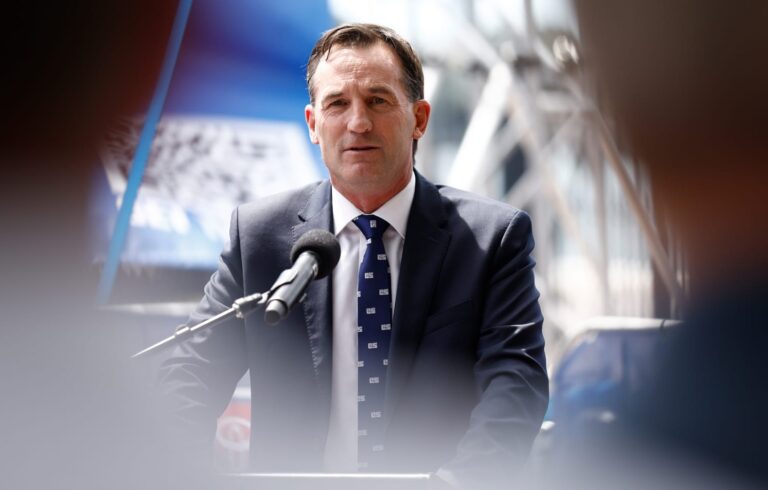Australian Rules Football's governing body acknowledges players are being tested for illegal drugs to avoid detection in match-related doping tests, its chief executive said on Wednesday. “I have no intention of feeling bad about this,” he said.
Federal MP Andrew Wilkie told Parliament about allegations that players faked injuries and missed anti-doping tests for matches and sports after being tested for illegal drugs, including cocaine, by the former club doctor and president of the Melbourne Demons. Stated.
Australian rules are similar to Irish Gaelic football in that players are allowed to handle and kick the ball in a contact game played by teams of 18 on an oval field. There is no serious international competition.
The Australian Football League attracts the largest audience and television audience in Australian sport.
Mr Wilkie said the “off-the-books” test results were never shared with the World Anti-Doping Agency or Sport Integrity Australia.
AFL chief executive Andrew Dillion said on Wednesday that player welfare was a key consideration for the league.
“A player's personal medical information is personal medical information and that is our first priority,” he said. “What we're talking about is the doctor and the player who is their patient, and that player's personal medical information…and it's the player's decision whether or not to disclose it.”
Mr Dillon said the tests Mr Wilkie referred to concerned “a small number of players out of 1,300” who take part in the men's and women's top leagues.
He said it was not in the public interest to detail the number of players who tested positive for illegal drugs, including cocaine.
The AFL has anti-doping rules unique to Australian sport and a “three strikes” approach based on its illegal drugs policy, which Mr Dillon said was under consideration.
“Club and AFL doctors have taken the right steps to ensure that players suspected of having illegal substances in their system do not play in AFL matches and that doctor-patient confidentiality is protected and respected. We are unapologetic about the steps we are taking,” he said. . “Given everything we know about the risks faced by young people in general and those attending our games in particular, the medical interests and welfare of our players is a top priority for the AFL.”
Dillon said urine tests are part of the illegal drugs policy and if a player's sample is found to contain illegal drugs, the club's doctor will allow the player to take part in matches or training. He said he would take measures to prevent this.
The AFL's illegal drugs policy has been in place since 2005 and Mr Dillon said it was being reviewed with input from the players' union.

